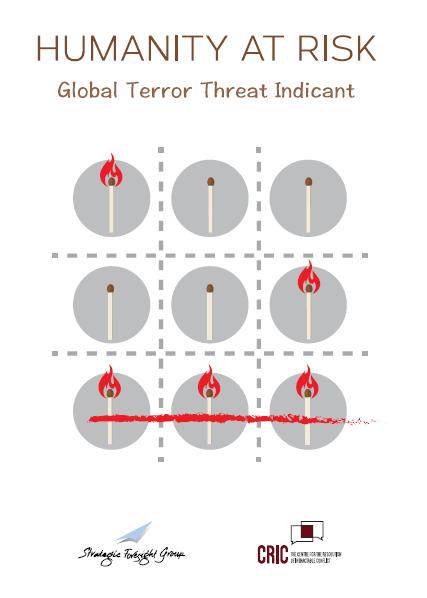No End In Sight
 |
December, 2009
By Anumita Raj
|
In the weeks leading up to Barack Obama���s decision to send another 30,000 American troops to Afghanistan, he took care to ensure that several different expert opinions on the matter were heard. From military experts who explained the pros and cons of different options to him, to General McChrystal who vigorously and vociferously defended his plan, from the Vice President, Joe Biden, who is an expert on foreign policy, to domestic advisors like Chief of Staff Rahm Emmanuel whose job it was to give him an idea of how lawmakers in the Congress and the Senate would react. While he has been accused of ���dithering��� and being indecisive, the fact is that Obama had to choose between the least of several difficult options, each as bad as the other. There are simply no good or easy decisions to be made on the war in Afghanistan. None of the options he was presented with came with simple consequences. 8 years in, this war is still no closer to being over than it was on 12th September, 2001.
Although Obama has been cautious, unlike his predecessor, in making the decision to send in 30,000 more troops to Afghanistan, his plan is not without intrinsic flaws. If the US-led engagement in Afghanistan is to have any chance of being successful, these flaws will need to be corrected, and quickly. The attribute of the plan that has most analysts confused was the decision to announce the date of withdrawal of the now 100,000 American troops, while announcing the new troop surge. Obama pointed to 2011 as the date when the US-led troops would begin to withdraw from Afghanistan. On the domestic level, the idea makes complete sense for the Obama Administration. Obama���s exit date is closely tied to his own domestic agenda; 2012 is the year of the next presidential election in America and the President can be expected to hit the campaign trail by 2011. If he can show his constituents that he has made strides towards reversing Bush-era policies, that he has enacted his campaign promise to prevent an open-ended engagement in Afghanistan, then he has a better than good chance of being re-elected.
More importantly, the United States is in the middle of the biggest recession the country has seen in decades. Obama���s ambitious domestic agenda, including the stimulus bill and the health care overhaul, have put the country���s budget deficit into hundreds of billions of dollars. Unemployment rates in the country have reached the double digits. In the midst of an obvious crisis at home, average Americans, as well as well as the Senators and Congressman that represent them, will not take kindly to spending hundreds of billions of their tax-dollars on a war in foreign soil, indefinitely.
Unfortunately for Obama, the exit date he has in mind is also wholly unfeasible. If US-led troops exit Afghanistan before some semblance of normalcy is returned to the country, then not only will the American engagement there have failed, but the blame will be placed squarely on Obama���s shoulders. Much more significantly, an unfinished war will seriously threaten not only regional security, but also the Americans��� own. If the Americans leave Afghanistan to the chaos that currently reigns in the country, and that is expected to remain until 2011 according to most analysts, then they will have worsened the plight of the Afghan people and placed them at the mercy of the Taliban once again.
If Obama wishes to reach his goal to remove American soldiers from Afghanistan at the earliest possible, then he will need to install a government in Afghanistan that can care for the people and that can battle any remnants of the Taliban and Al-Qaeda that are left in the country. At present, he does not have that luxury. Hamid Karzai was re-elected President of Afghanistan in the latest round of elections, which most experts have agreed was rigged to ensure his victory. Karzai has proven to be a woefully incompetent leader and has lost favour in Washington. His government is believed to be corrupt, full of nepotism, and unwilling to deal with domestic security issues. An exit date will require an Afghan government that is without Karzai, who has not just lost the faith of Washington politicians, but also his own people. As of now, that goal does not seem achievable in the near future.
Obama���s decision comes with a ���damned if you do, damned if you don���t��� clause. With or without the exit date, this troop surge was going to be unpopular, despite its necessity and the urgency of the situation. However, by giving a definite date for withdrawal, Obama���s has opened Pandora���s Box into a whole new set of problems, which the Americans can ill-afford at the moment. White House Press Secretary, Robert Gibbs, has begun to walk back some of what Obama announced in the speech, assuring that 2011 date that was given will just be the ���beginning of the end��� of the war in Afghanistan. This can be taken to mean that the troop withdrawal could take several months, even a couple of years, and that the Americans will employ the same phased withdrawal that they are in Iraq. It remains to be seen if, in fact, this is the case. In the meanwhile, there seems to be no end in sight for a war that even after the better part of a decade seems no closer to being over.
Related Publications
Related latest News
Related Conferences Reports
-

P5 Experts Roundtable on Nuclear Risk Reduction
Download:Geneva Roundtable Report
-

Roundtable on Global Security and Catastrophic Risks
Download:Report on RT revise





